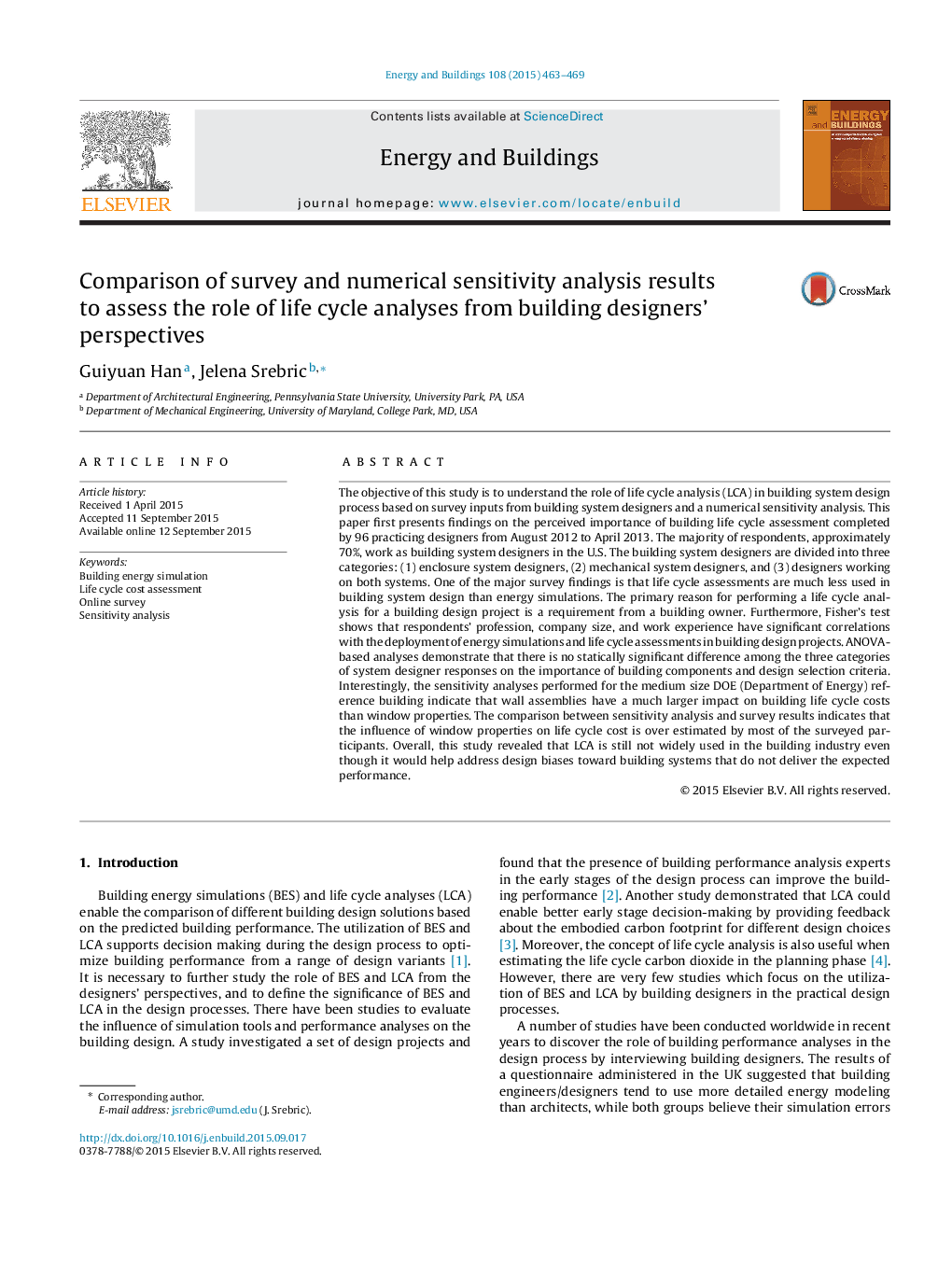| Article ID | Journal | Published Year | Pages | File Type |
|---|---|---|---|---|
| 6731128 | Energy and Buildings | 2015 | 7 Pages |
Abstract
The objective of this study is to understand the role of life cycle analysis (LCA) in building system design process based on survey inputs from building system designers and a numerical sensitivity analysis. This paper first presents findings on the perceived importance of building life cycle assessment completed by 96 practicing designers from August 2012 to April 2013. The majority of respondents, approximately 70%, work as building system designers in the U.S. The building system designers are divided into three categories: (1) enclosure system designers, (2) mechanical system designers, and (3) designers working on both systems. One of the major survey findings is that life cycle assessments are much less used in building system design than energy simulations. The primary reason for performing a life cycle analysis for a building design project is a requirement from a building owner. Furthermore, Fisher's test shows that respondents' profession, company size, and work experience have significant correlations with the deployment of energy simulations and life cycle assessments in building design projects. ANOVA-based analyses demonstrate that there is no statically significant difference among the three categories of system designer responses on the importance of building components and design selection criteria. Interestingly, the sensitivity analyses performed for the medium size DOE (Department of Energy) reference building indicate that wall assemblies have a much larger impact on building life cycle costs than window properties. The comparison between sensitivity analysis and survey results indicates that the influence of window properties on life cycle cost is over estimated by most of the surveyed participants. Overall, this study revealed that LCA is still not widely used in the building industry even though it would help address design biases toward building systems that do not deliver the expected performance.
Related Topics
Physical Sciences and Engineering
Energy
Renewable Energy, Sustainability and the Environment
Authors
Guiyuan Han, Jelena Srebric,
